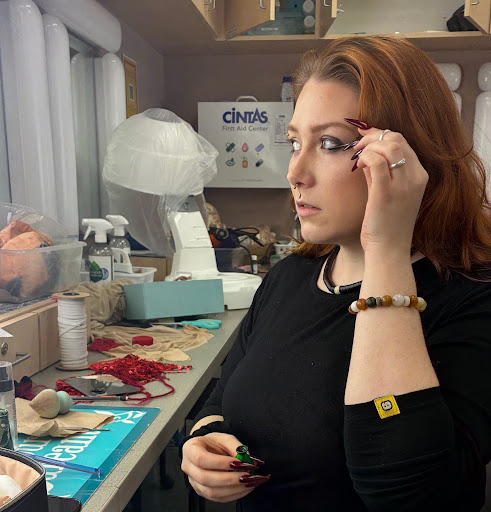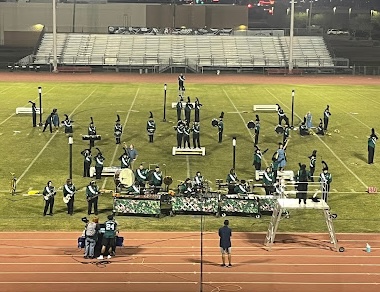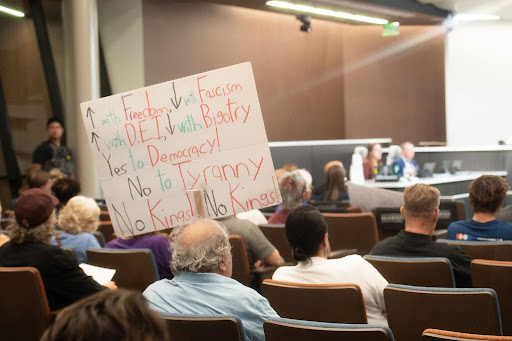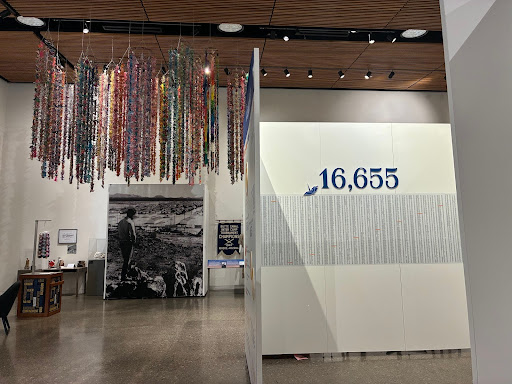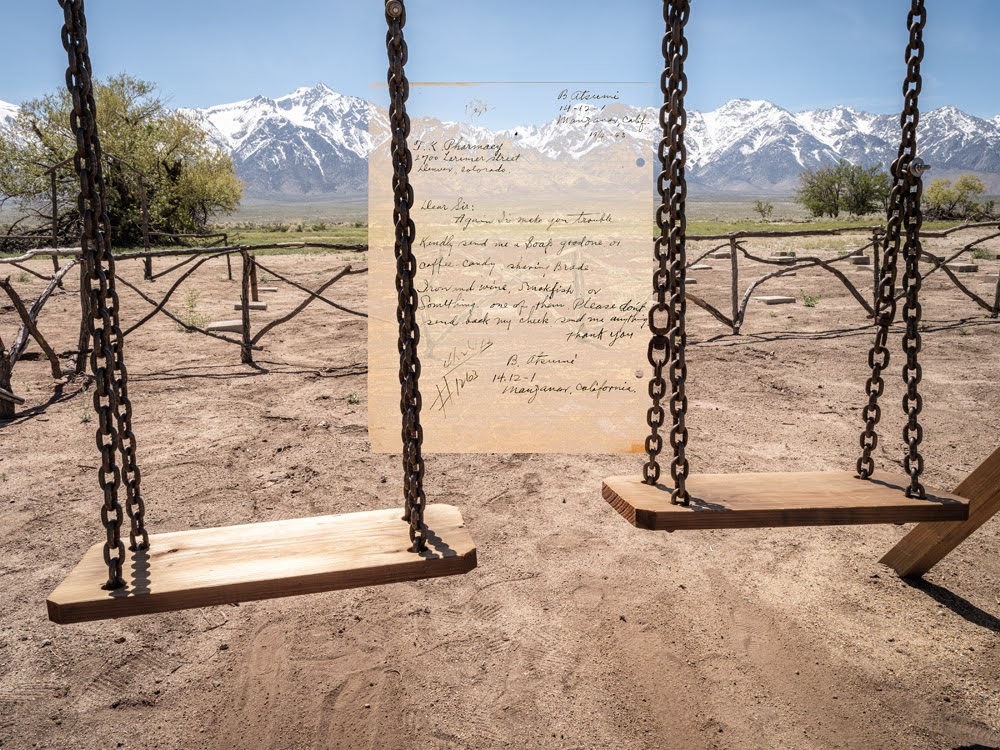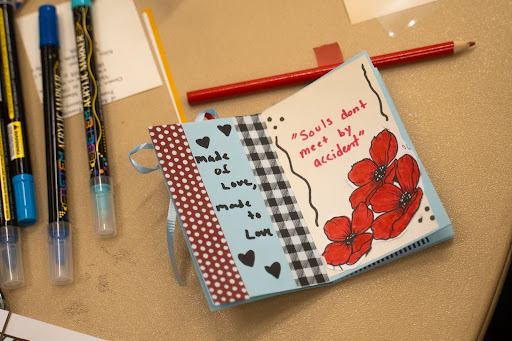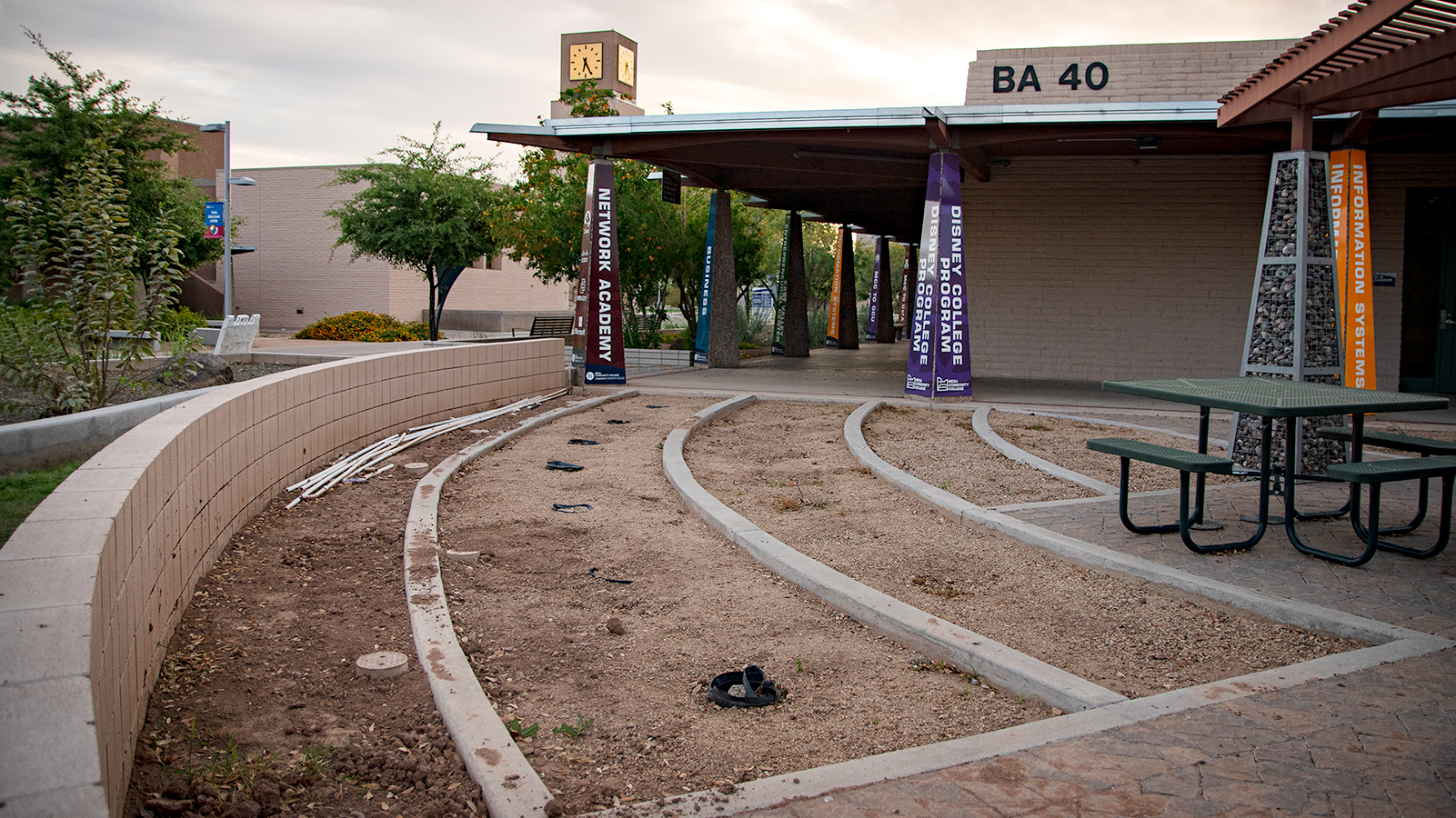A garden for endangered monarchs springs up on MCC campus
Mesa Community College students are leading projects to preserve endangered monarch butterflies on campus this spring as more hands are needed to create their habitats.
The monarch butterfly population has declined by 90% in the last two decades, mostly due to habitat loss and the changing temperatures, according to the U.S. Fish and Wildlife Service. In December, the service added monarchs to the candidate list of species protected under the Endangered Species Act. .
In response, the nonprofit organization Southwest Monarch Study has encouraged institutions and individuals to plant gardens to attract monarchs called Waystations. MCC students and faculty are taking part in the task.
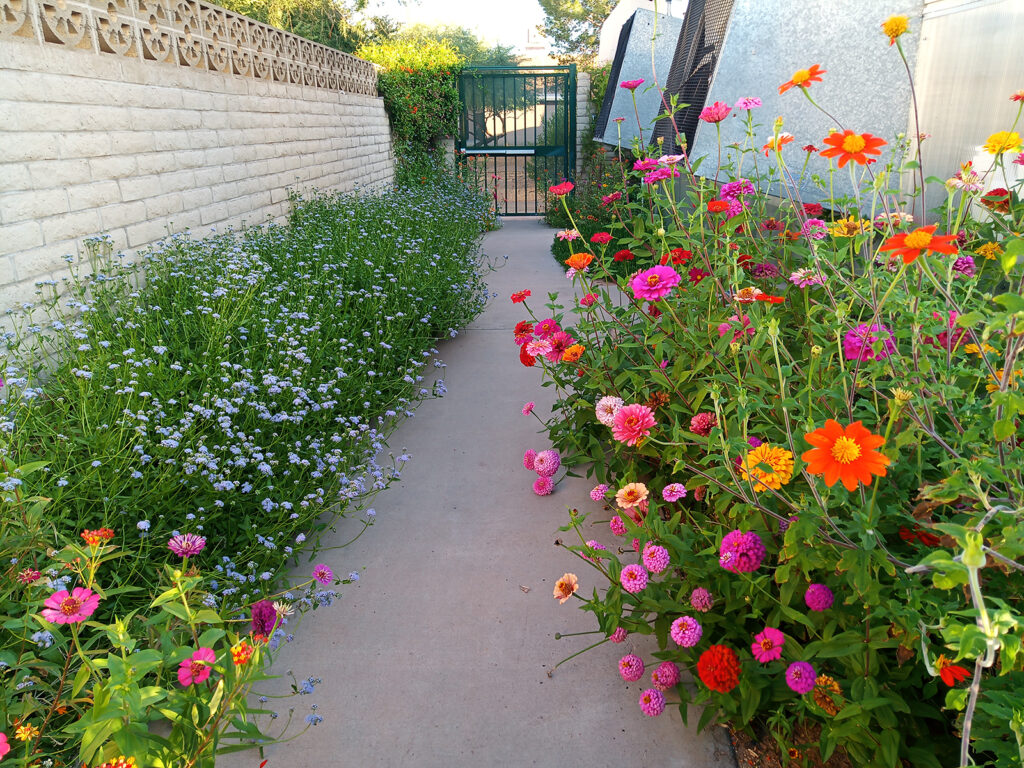
Danette Turner, a staff member at MCC’s Center of Community and Civic Engagement, saw the project as a great opportunity and started working with faculty on campus to make it happen and bring student participation to the table.
“It is for the students. It’s designed to help promote their education and their experience in the classroom,” said Turner. “Without the students, there wouldn’t be a project.”
Makenna Broderick, an MCC elementary education student and member of the environmental engagement club, signed up to set up a Waystation on the Southern and Dobson campus as an honors project for one of her spring classes.
She said the environmental engagement team got to choose a site at MCC for the garden at the beginning of the semester. Since then they have been working to grow plants needed to attract pollinators through their migration.
According to MCC environmental biology professor Sean Whitcomb, the garden needs various types of milkweed and nectar plants to feed adult monarchs and caterpillars as well as colorful flowers that attract their attention.
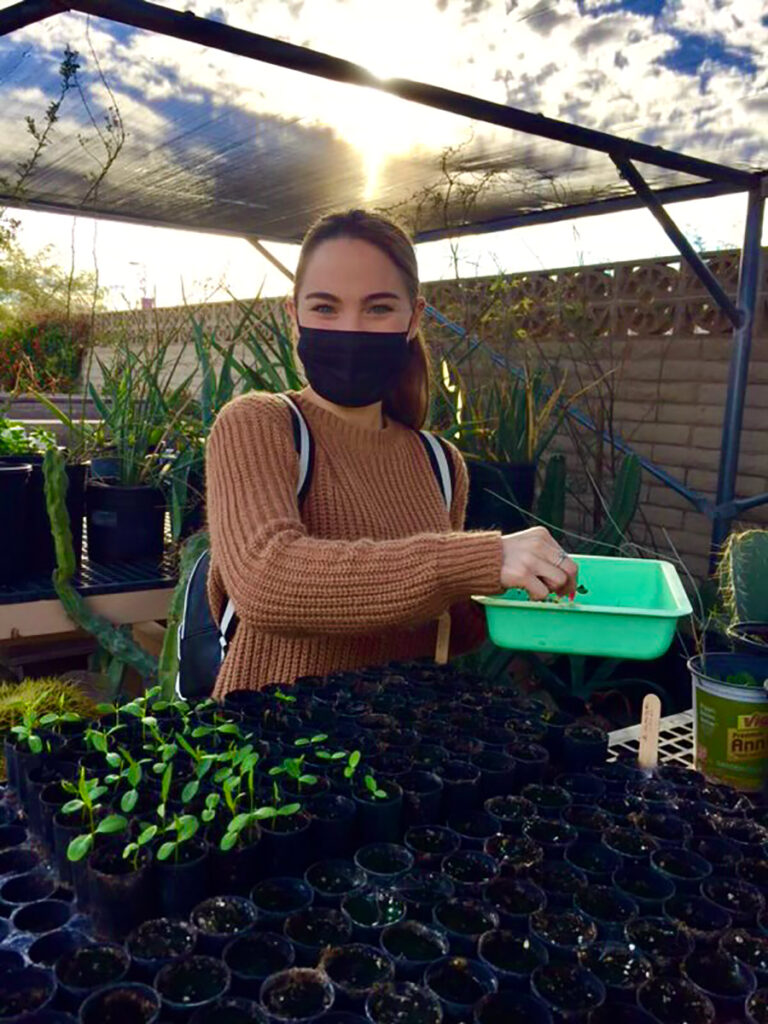
Whitcomb, who encouraged Broderick to engage in the project this semester, said students’ participation has simplified the work. He would like to have more students from different departments involved in the project.
“The more the merrier,” he said.
MCC graphic design students also joined the team to create pamphlets and signs about pollinators and their habitats to be posted around campus and at the Waystation.
“When students pass by on campus and stuff, they will see what they’re looking at and get more information by reading those signs, so that’s really cool,” said Broderick.
The club will also host a virtual showing of the movie “Flight of the Butterflies” on April 14 to motivate students and staff to plant seeds at MCC–and even to recreate the project at home.
“We’re hoping that it will just get some of the students involved and excited,” she said.
Attendees can receive prizes at the end of the event, which will be an honors cocurricular.
According to Turner, this project was meant to go beyond campus from the beginning.
“My thought was always that the students would take this into their communities,” said Turner. “If it stayed just at MCC, it would make a nice impact but not a big impact.”
Broderick also said she would like to see more students involved in upcoming semesters, and she looks forward to where the project will lead.
“We may not see monarchs flying around anymore within a few decades,” said Whitcomb. “We don’t want that to happen, that’s why we’re getting involved in this.”


